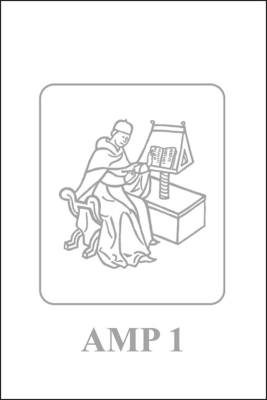Ancient and Medieval Philosophy-Series 1
1 total work
Ibn Sînæ, known in the West as Avicenna, may be considered to be a major figure of the history of Arabo-Islamic philosophy, medicine and science. His influence was substantial and enduring, not only in the Islamic world, but also in medieval Christian-Latin and Jewish circles. This volume includes contributions of eminent scholars in very different fields of Avicenna's thought and influence. New insights are offered inter alia on the different ways of reception of his philosophy in the Islamic East or, more specifically, in Isma'ili thought, or in the great Shi'ite Iranian thinker, i.e., Mullæ ?adræ; on a recently -thus far unknown- treatise on ethics; on the phenomenon of pseudepigraphica related to Avicenna; on several innovative ideas in Avicenna's logic, physics, metaphysics and zoology; on the difficult issue of hendyades in the Avicenna Latinus; on Albert the Great's probable knowledge of Avicenna's Preface to the latter's opus magnum; on William of Auvergne's and Duns Scotus' critical use of Avicennian ideas in several aspects of their philosophy; on the significance of Avicenna for such particular doctrines as that of relation in Henry of Ghent or of evil in Thomas of Aquinas; on Avicenna's direct or indirect influence on medieval Jewish philosophy, and, more particularly, on Maimonides; on the place of Avicenna's medical Qænºn in the Arabo-Islamic tradition and on the way it was dealt with in medieval Europe. Herewith, a serious basis is laid for a better understanding of Avicenna's thought and its spread.
